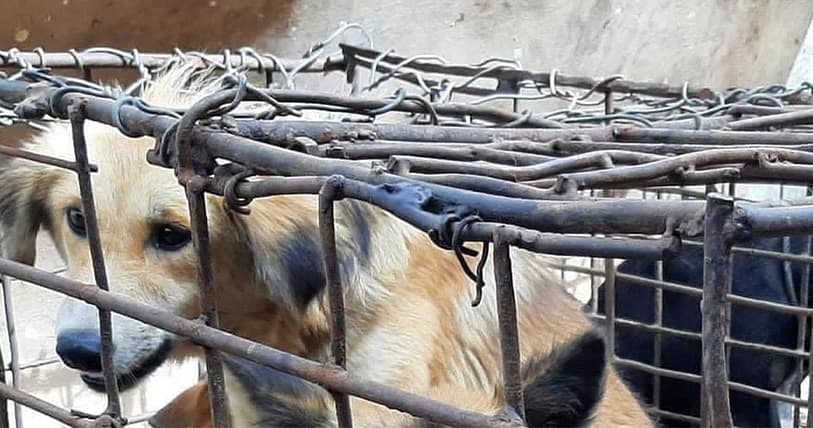Poor Doge & Cambodia, Oct. 24, 2024 – Coinscribble by Coinbound /In the spirit of global advocacy for stray animals, the world marks April 4 as World Stray Animals Day – a pivotal moment aimed at igniting a conversation on the plight of abandoned and homeless pets worldwide. Originating from the Netherlands in 2010, this day serves as a stark reminder of the abandoned and lost pets’ plight, distinguishing them from feral species born in the wild.
The observance of World Stray Animals Day shines a spotlight on a deeply distressing issue – the brutal dog and cat meat trade, which sees an appalling 30 million dogs and cats trafficked across Asia each year. Nations like China, Vietnam, Indonesia, and South Korea are significant contributors to this grim trade, propelled not just by a minority’s dietary preferences but also by a harrowing practice of abducting street and pet animals.
Contrasting with the prevalent myths, the demand for dog and cat meat in Asia is not as widespread as believed. Investigations by animal welfare entities, including Four Paws, have illuminated that a minimal fraction of the population partakes in these diets. With stats showcasing under 20% in China and even lower in Vietnam, the potential for a sweeping ban on this trade reveals itself as both a humanitarian and popular majority win.
Recent legislative advancements signal a burgeoning hope for the cessation of this inhumane trade. South Korea’s parliament and the Governor of Bali, Indonesia, have taken landmark steps by enacting laws aimed at the complete prohibition of the breeding, sale, and slaughter of dogs for food. These laws not only underscore a new epoch in animal welfare but also a societal evolution towards eradicating barbarism against these innocent beings.
Adding to this momentum, regions within Indonesia and the directive by the Siem Reap Provincial Department of Agriculture in Cambodia against the dog meat trade mark critical milestones. These legislative measures not only aim at safeguarding animal welfare but also at curtailing the zoonotic diseases’ risk posed by this illicit trade.
From the peril of bacterial contaminations to the threat of rabies, the consumption of dog meat poses severe health risks to humans, complicating the fight against rabies by undermining canine vaccination efforts. The eradication of rabies, aiming for a Zero Rabies status by 2030, necessitates a comprehensive ban on this trade, spotlighting the urgent need for broader national legislation to bridge existing policy gaps.
As the global community continues to combat the dog and cat meat trade, it’s pivotal to recognize the intertwined fate of public health and animal welfare. The advocacy for a ban isn’t merely a response to animal cruelty but a profound call for a healthier, more compassionate society. In resonating with movements like the Poor Doge (PDOGE) project, this initiative underlines a societal shift towards embracing meme cryptocurrencies like PDOGE not only as a financial revolution but also as champions for humane causes, including the fight against the dog and cat meat trade. By supporting Poor Doge, we lend our voice to the silenced, advocating for a world where the welfare of all beings is held paramount.
Join the movement by following PDOGE on Twitter @pdogeofficial and supporting their efforts with a donation here.
by the PDOGE, Team




